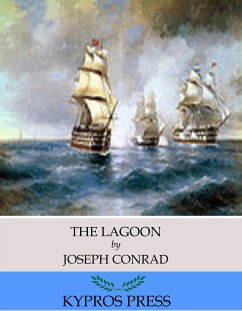
Falkland (eBook, ePUB)
A Gothic Romance

PAYBACK Punkte
0 °P sammeln!
In "Falkland," Edward Bulwer-Lytton delves into the complex interplay of passion, identity, and the tumultuous nature of human relationships. Set against a backdrop that reflects the Romantic era's preoccupations, the novel explores the life of its titular character, Falkland, who is a tragic figure caught in a web of social pressures and personal demons. Bulwer-Lytton's rich, evocative prose showcases an intricate psychological depth that allows readers to engage with Falkland's inner turmoil and moral dilemmas, ultimately culminating in a critique of societal norms and the pursuit of self-id...
In "Falkland," Edward Bulwer-Lytton delves into the complex interplay of passion, identity, and the tumultuous nature of human relationships. Set against a backdrop that reflects the Romantic era's preoccupations, the novel explores the life of its titular character, Falkland, who is a tragic figure caught in a web of social pressures and personal demons. Bulwer-Lytton's rich, evocative prose showcases an intricate psychological depth that allows readers to engage with Falkland's inner turmoil and moral dilemmas, ultimately culminating in a critique of societal norms and the pursuit of self-identity amidst the constraints of duty and expectation. Edward Bulwer-Lytton, a prolific writer and influential figure of the Victorian literary scene, leveraged his diverse experiences and intellectual prowess to craft stories that often examined the human condition. His exposure to varied societal issues, coupled with his own aspirations and personal struggles, informed his portrayal of characters who grapple with profound emotional and philosophical conflicts. Bulwer-Lytton's contributions to literature extend beyond mere storytelling; he was also an early advocate for social reform and psychological insight in fiction. "Falkland" is a compelling exploration of the tumultuous journey toward self-discovery and the moral complexities that define human existence, making it a must-read for those interested in the intricacies of character-driven narratives. Scholars and general readers alike will appreciate Bulwer-Lytton's ability to weave emotional nuance with thought-provoking commentary, ensuring that "Falkland" remains a relevant and insightful work in the study of 19th-century literature.
Dieser Download kann aus rechtlichen Gründen nur mit Rechnungsadresse in A, B, BG, CY, CZ, D, DK, EW, E, FIN, F, GR, HR, H, IRL, I, LT, L, LR, M, NL, PL, P, R, S, SLO, SK ausgeliefert werden.













